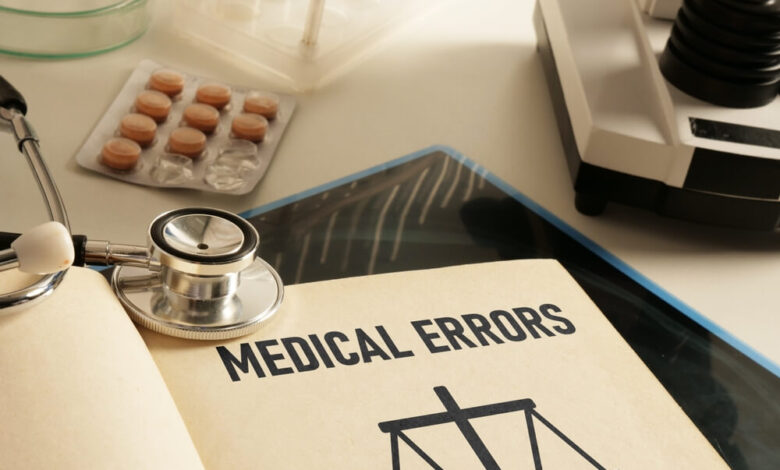When Medical Care Goes Wrong After a Road Accident: Understanding Your Rights to Compensation

Road traffic accidents can be traumatic experiences that leave lasting physical and emotional scars. Whilst many accident victims focus on claiming compensation for the immediate injuries sustained in a collision, what happens when the medical treatment you receive afterwards makes things worse? Understanding both your rights to claim for road accidents and potential medical negligence compensation is crucial for anyone who has suffered harm on Britain’s roads.
The Intersection of Road Accidents and Medical Treatment
When you’re involved in a serious road collision, particularly motorcycle accident claims which often result in severe injuries, you’re placing your trust in medical professionals to provide appropriate care. Motorcyclists are especially vulnerable on our roads, with accidents frequently resulting in traumatic injuries such as severe head trauma, spinal damage, and complex fractures requiring immediate medical intervention.
However, the care you receive doesn’t always meet the standards you deserve. When medical professionals fail to provide adequate treatment following a road accident, you may have grounds for both a road traffic accident claim and a separate claim for medical negligence.
Understanding Medical Negligence After Road Accidents
Medical negligence occurs when a healthcare professional provides substandard care that causes you harm. Following a road traffic accident, this could manifest in various ways:
Common Examples of Post-Accident Medical Negligence
Misdiagnosis or Delayed Diagnosis: After a motorcycle collision, internal injuries such as internal bleeding or organ damage might be missed during initial assessments. A delayed diagnosis of a traumatic brain injury could allow the condition to worsen significantly, leading to permanent cognitive impairment that could have been prevented with timely intervention.
Surgical Errors: Road accident victims often require emergency surgery. Surgical negligence might include operating on the wrong body part, leaving surgical instruments inside the body, or causing unnecessary damage to surrounding tissues during the procedure.
Medication Errors: If you’re prescribed pain relief or other medications following your accident, being given the wrong dosage or a medication you’re allergic to constitutes negligence. These errors can have serious, sometimes fatal, consequences.
Inadequate Post-Operative Care: Following surgery for accident-related injuries, inadequate monitoring or failure to recognise post-surgical complications like infections can lead to additional harm and prolonged recovery periods.
The Impact of Medical Negligence on Road Accident Victims
The consequences of receiving substandard medical care after a road accident can be devastating. You may find yourself facing:
- Extended Recovery Time: What should have been a straightforward recovery becomes complicated by additional medical issues
- Increased Pain and Suffering: The physical and emotional toll multiplies when negligent treatment causes further harm
- Additional Financial Losses: More time off work, extra medical appointments, and increased care needs all add to your financial burden
- Permanent Disability: In severe cases, medical negligence can result in permanent impairments that wouldn’t have occurred with proper care
- Psychological Impact: Developing conditions such as PTSD, anxiety, or depression as a result of both the accident and subsequent negligent treatment
Your Rights to Compensation
If you’ve been harmed by both a road traffic accident and subsequent medical negligence, you may be entitled to pursue two separate compensation claims.
Claiming for the Original Accident
For the road accident itself, you can claim compensation if another road user breached their duty of care. This applies whether you were riding a motorcycle, driving a car, cycling, or even walking. All road users have a legal obligation to navigate safely and responsibly, following the Highway Code and Road Traffic Act 1988.
Motorcycle accident claims can result in substantial compensation, particularly for severe injuries. For instance, very severe brain and head injuries can attract compensation between £344,150 and £493,000, according to the Judicial College Guidelines. Severe spinal injuries resulting in serious disability may warrant between £111,150 and £196,450.
Claiming for Medical Negligence
Separately, if your medical treatment fell below acceptable standards and caused you additional harm, you can pursue medical negligence compensation. In 2023/24, approximately £2.8 billion in medical negligence compensation was paid out to claimants, demonstrating that such claims are both common and recognised by the legal system.
To succeed with a medical negligence claim, you must prove:
- You were owed a duty of care by the medical professional
- This duty of care was breached through substandard treatment
- The breach directly caused you harm
The “but-for” test is often used to establish causation – would you have suffered this particular harm but-for the negligent actions of the healthcare professional?
Time Limits for Making Your Claims
Understanding time limits is crucial for both types of claims:
Road Traffic Accident Claims: You have three years from the date of the accident to start your claim under the Limitation Act 1980.
Medical Negligence Claims: You also have three years, but this runs from either the date the negligence occurred or the date you realised (or should have realised) that your suffering was caused by negligence.
It’s important to note that you don’t need to complete your claims within three years – you simply need to start the process. However, starting earlier is always advisable as evidence is fresher and witnesses’ memories are clearer.
Exceptions to Time Limits
Both types of claims have similar exceptions:
- For Children: If the victim is under 18, they cannot manage their own claim. A litigation friend can claim on their behalf at any time before their 18th birthday, or the child can wait until they turn 18, at which point their three-year limitation period begins.
- Lack of Mental Capacity: If someone lacks the mental capacity to make a claim themselves, a litigation friend can act on their behalf with no time limit applying unless capacity is regained.
What Compensation Covers
Both road accident and medical negligence claims compensate you through general and special damages.
General Damages
General damages cover:
- Pain and suffering
- Emotional distress and psychological impact
- Loss of amenity (the effect on your quality of life and daily activities)
The Judicial College Guidelines provide bracket figures for various injuries to help calculate general damages. However, every case is unique, and multiple factors influence the final amount.
Special Damages
Special damages compensate you for financial losses, including:
- Lost earnings from time off work or reduced earning capacity
- Medical expenses, including private treatment costs
- Care costs, whether professional carers or family members providing care
- Mobility aids and equipment
- Home adaptations for disabilities
- Transportation costs for medical appointments
- Prescription costs
For road accident victims who then suffer medical negligence, special damages can be particularly significant as you’re facing losses from both the original accident and the subsequent negligent treatment.
Claiming on Behalf of Others
You can make claims on behalf of loved ones by becoming a litigation friend. This is common when:
- The injured party is under 18
- The injured party lacks mental capacity to manage their own claim
- A loved one has died due to a road accident or medical negligence
Fatal Accident Claims
If tragically a loved one has died, the deceased’s estate can claim for the deceased’s pain and suffering within six months of death under the Law Reform (Miscellaneous Provisions) Act 1934.
Dependents have three years under the Fatal Accidents Act 1976 to claim for how the death has affected them financially and emotionally. Certain eligible relatives may also claim a bereavement award.
The Importance of Evidence
Strong evidence is crucial for both types of claims. For road accident claims, gather:
- CCTV or dashcam footage
- Photographs of the accident scene, vehicle damage, and injuries
- Contact details of witnesses
- Contact and insurance details of other parties involved
- Police accident reports
For medical negligence claims, keep:
- Detailed medical records
- A symptoms diary documenting your condition
- Records of all treatments received
- Correspondence with healthcare providers
- Expert medical opinions
- Evidence of financial losses
The Claims Process
Both types of claims follow similar processes:
- Initial Consultation: Discuss your case with legal advisors to determine eligibility
- Evidence Gathering: Collect all relevant documentation and witness statements
- Medical Assessment: Independent medical experts assess your injuries and their causes
- Notification: The defendant is formally notified of your claim
- Negotiation: Your solicitor negotiates a settlement on your behalf
- Settlement or Court: Most cases settle out of court, but some proceed to trial if agreement cannot be reached
- Compensation Payment: Upon successful conclusion, you receive your compensation
The timeframe varies considerably. Straightforward road accident claims might settle within a year, whilst complex medical negligence cases can take several years, particularly if liability is disputed or the case goes to court.
No Win No Fee Arrangements
One concern many people have about pursuing legal claims is the cost. However, most specialist solicitors handling both motorcycle accident claims and medical negligence compensation claims work on a Conditional Fee Agreement (CFA), commonly known as No Win No Fee.
Under a CFA:
- You pay nothing upfront
- You pay no fees during the claims process
- You only pay a success fee if you win, deducted as a legally-capped percentage from your compensation
- If you don’t win, you don’t pay solicitor’s fees
This arrangement makes justice accessible regardless of your financial situation, which is particularly important for accident victims already facing financial hardship from lost earnings and mounting expenses.
Why Specialist Legal Help Matters
Both road traffic accident claims and medical negligence claims involve complex legal and medical issues. Specialist solicitors bring:
- Expertise in proving causation and liability
- Access to medical experts who can provide independent assessments
- Experience in calculating appropriate compensation
- Negotiation skills to secure maximum settlements
- Knowledge of relevant legislation and case law
- Support throughout what can be a lengthy and stressful process
They handle all communication with insurance companies, defendants, and medical experts, allowing you to focus on your recovery.
Making a Complaint About Your Treatment
Pursuing medical negligence compensation doesn’t prevent you from also making a formal complaint about your treatment. You can:
- Complain to the NHS by speaking to staff or using feedback forms
- Contact the Care Quality Commission about NHS care
- Follow the complaints procedure for private healthcare providers
Making a complaint can help prevent similar incidents happening to others and may provide additional documentation for your compensation claim.
Moving Forward After Dual Trauma
Experiencing both a road accident and subsequent medical negligence represents a double trauma. However, understanding your rights and taking action to claim the compensation you deserve can help you move forward. Compensation cannot undo the harm you’ve suffered, but it can:
- Provide financial stability during recovery
- Fund private medical treatment to address ongoing issues
- Cover care costs and support services
- Compensate you for pain, suffering, and loss of enjoyment of life
- Hold responsible parties accountable
- Provide a sense of justice and closure
Taking the First Step
If you’ve been injured in a road traffic accident and believe you may have also received negligent medical treatment, seeking expert legal advice is essential. Early consultation helps preserve evidence, ensures you don’t miss limitation deadlines, and provides clarity on your options.
Whether you’re dealing with injuries from a motorcycle collision, complications from surgical errors, or the devastating combination of both, specialist solicitors like at advice.co.uk can guide you through the process of claiming the compensation you rightfully deserve.
Don’t let concerns about costs or the complexity of the legal system prevent you from seeking justice. With No Win No Fee arrangements and experienced legal professionals on your side, you can pursue your claims with confidence, knowing you have expert support every step of the way.
Remember, claiming compensation isn’t just about financial recovery – it’s about holding negligent parties accountable, accessing the treatment and support you need, and taking back control after traumatic experiences that should never have happened.


